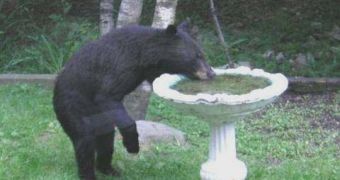This morning, Palm Beach Gardens is expected to house a meeting during which the future of the black bear species will fall under discussion.
Those who participate in this conference are members of various green-oriented groups, representatives of the South Florida Wildlands Association and several other specialists from the field of environmental protection.
Thus, they are debating whether or not it is now acceptable to remove said animal from the endangered species list, seeing how its population seems to have significantly increased.
To be more precise: back in the 70s, only 300 black bears were left roaming the wilds; however, a recent head-count conducted by the FWC and published in its Biological Status Review informs us that 3,000 such animals presently live in Florida's woods.
The same report argues that most of them are to be found in the Ocala National Forest.
As one can easily guess, having more bears around increases the odds of them running into humans, especially given the fact that, as a result of major urbanization and agricultural programs, the black bears' natural habitat was largely destroyed. Huffington Post reports that just recently a black bear bumped into a woman who was walking her dog, and ended up biting her. As well as this, other black bears were caught on tape while wrestling on someone's lawn.
By taking the black bears off the endangered species list, the Florida Fish and Wildlife Conservation Commission wishes to convey the message that consistent conservation efforts have been quite successful.
On the other hand, environmentalists claim that, once the animals are once again left without proper legal protection, their population might plummet in no time.
In a recent interview, Mathew Schwartz from the South Florida Wildlands Association explains that “Bears are showing up in people’s backyards because people are moving into bears’ backyards.”
He also adds that by 2060 black bears will have lost 2,3 million acres of their original habitat, unless something is soon done to keep this from happening.
For the time being, all we can do is wait and see how this debate will eventually turn out.

 14 DAY TRIAL //
14 DAY TRIAL //